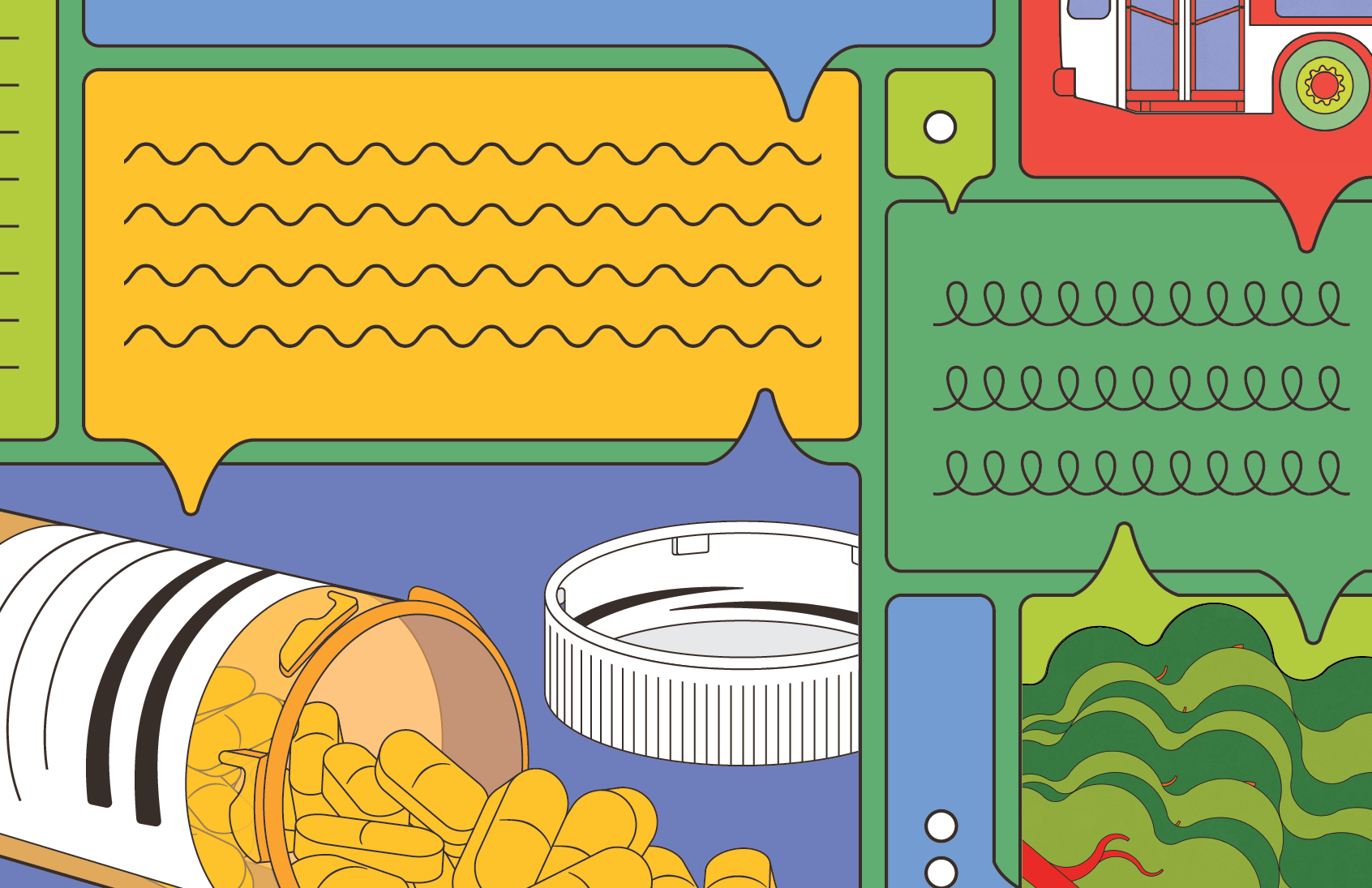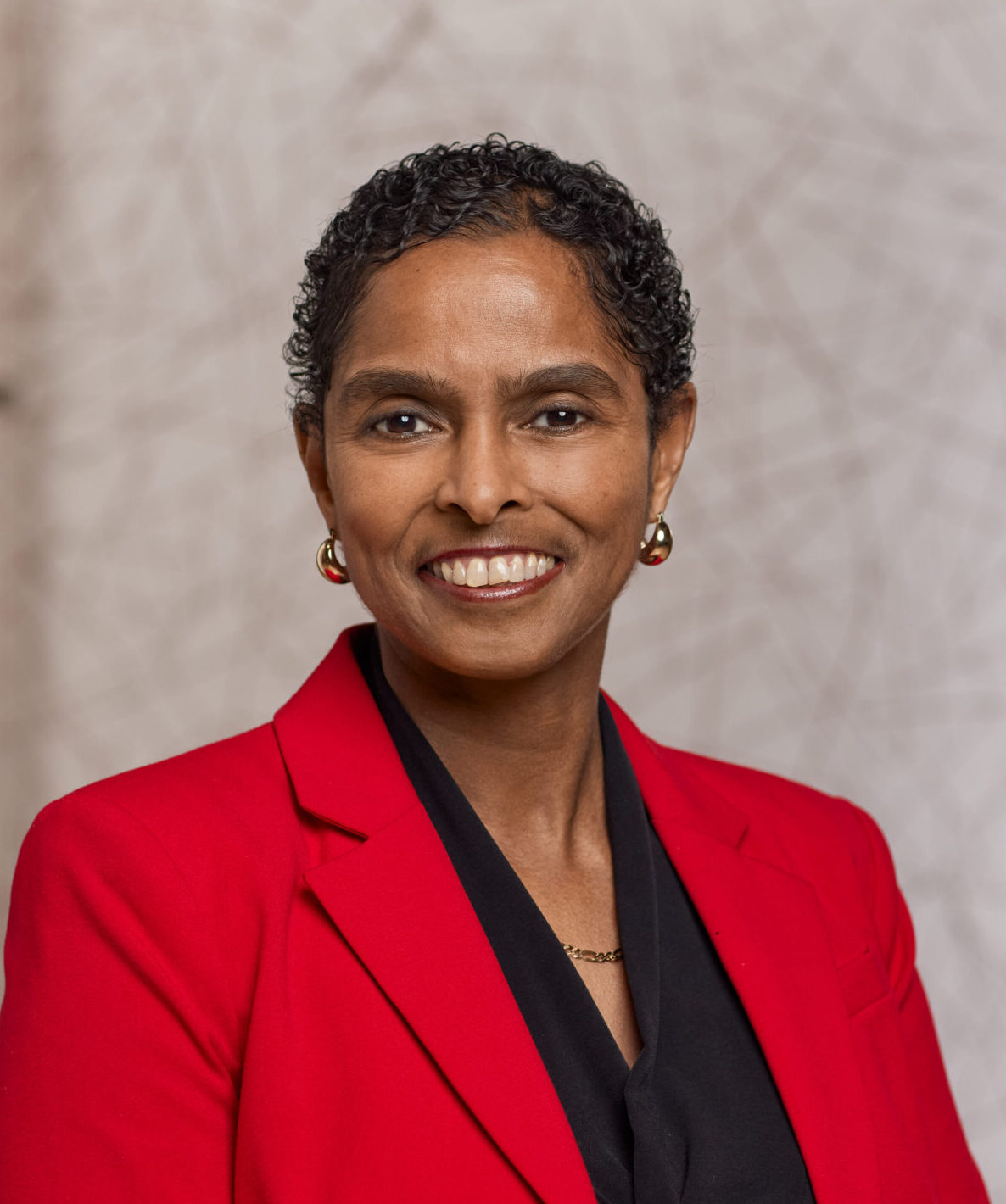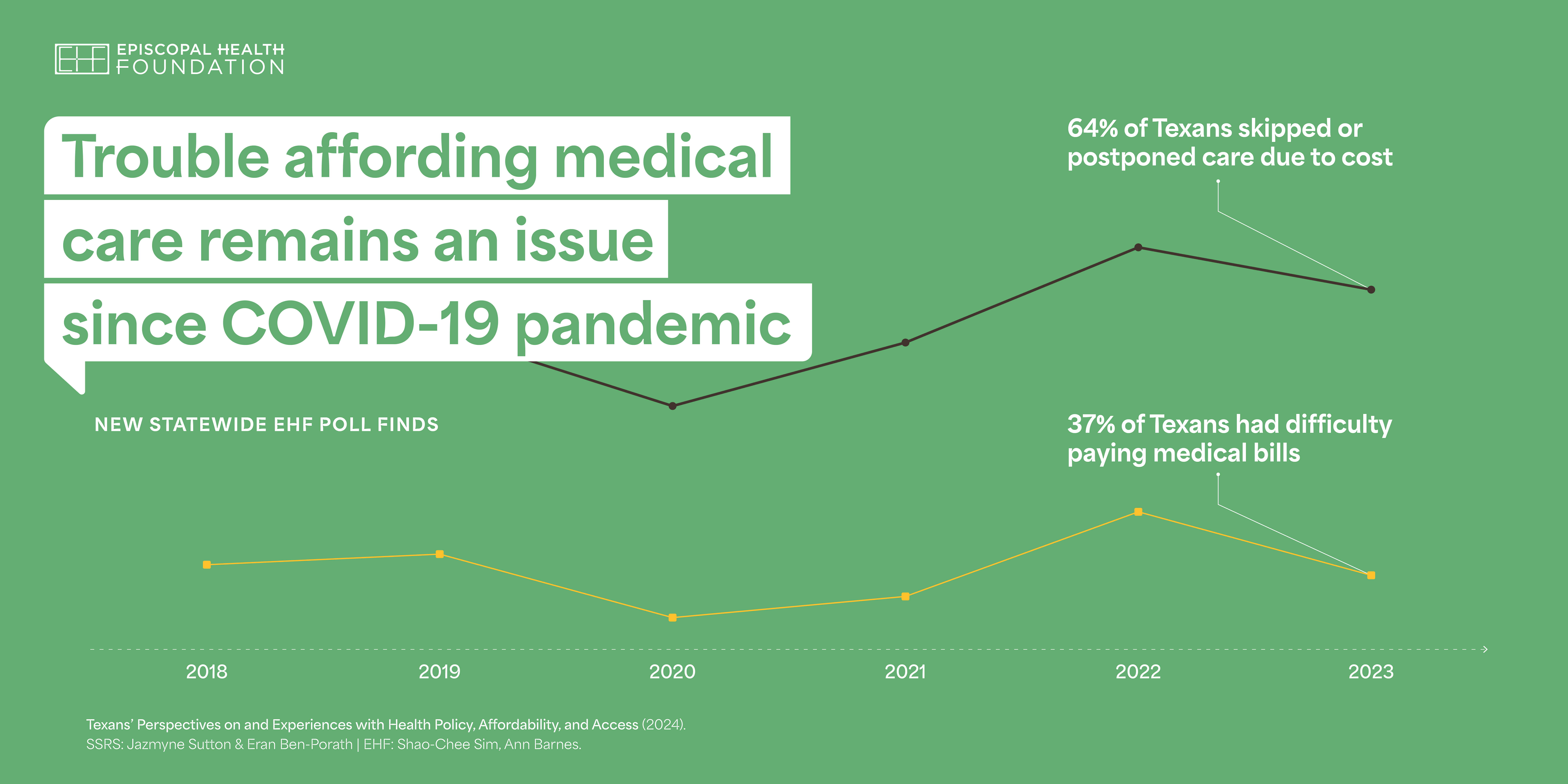
“Texans are telling us about their struggles to find affordable health care – especially those facing the most barriers to good health,” says Dr. Ann Barnes, president and CEO of Episcopal Health Foundation. “The bottom line is that opportunities to be healthy are not equal across all populations in Texas.”
EHF’s poll found that 64% of Texans said they skipped or postponed some sort of health care because of the cost. That includes things like check-ups, treatments, tests, filling prescriptions, and dental care. That percentage is slightly down from the 68% who said they skipped care last year – the highest percentage in the six-year history of EHF’s poll.
“Skipping preventive tests and checkups is like ignoring warning signs on a road — it may be ok now, but you won’t know when life-changing obstacles are coming,” says Dr. Barnes, a physician who previously oversaw clinic services at several safety-net health systems in Texas. “Missing treatments usually ends with existing medical conditions getting worse, not better. And the costs for future care only gets higher.”
Texans have trouble paying medical bills, affording health care
EHF’s poll also finds that nearly four in 10 Texans (37%) say they had difficulty paying their medical bills. That number is slightly down from 43% last year – the highest percentage of Texans reporting trouble paying medical bills in the six years EHF has conducted the statewide poll.
Researchers found that those with lower incomes, Black and Hispanic Texans, and younger adults are more likely to say they have had trouble affording medical bills.
In addition, the poll shows that almost half (47%) said it’s difficult for them to afford health care. Almost two-thirds of low-income Texans (62%) said they had struggles affording health care compared to just 30% of higher earners. Hispanic (61%) and Black (44%) Texans said they had more trouble affording health care than White (38%) Texans.
Many Texans say the state isn’t solving the struggles to afford and access health care
The poll finds that almost seven out of 10 Texans (68%) say the state is not doing enough to ensure low-income adults can get the health care they need. Most Texans say the state also is not doing enough to help children (57%) get care and half say the state isn’t doing enough to make sure pregnant women access needed care.
“Recent legislative efforts have shown the difference that policy changes can make in making sure those most in need get the care they need,” Barnes said. “HB12 extended postpartum Medicaid health insurance coverage to mothers in Texas from two months to a full year. Half of all Texas births are covered by Medicaid, so it’s an important example of how lawmakers can help bridge the gap in health and health care accessibility for millions of Texans.”
When it comes to other possible solutions, the poll shows that 71% of Texans say they support expanding Medicaid health insurance to more low-income Texans under the Affordable Care Act (ACA). Texas remains one of just 10 states that has not expanded Medicaid coverage under the ACA.

Some Texans don’t have primary care physician or usual place for care
Researchers found that 14% of Texans say they don’t have a usual source of care – meaning they don’t have a primary care provider or they just go to the emergency room for routine care. Texans without health insurance (35%) and those with lower incomes (21%) are much more likely to say they don’t have a usual place to get health care.
Methodology
SSRS conducted the latest wave of the Texas Health Tracking Survey on behalf of Episcopal Health Foundation from October 18 through December 19, 2023. Similar polls have been conducted on behalf of EHF since 2018. The latest survey was conducted online and by telephone with a representative sample of 1,956 Texas adults (age 18 or older). The sample includes 938 Texas adults reached through the SSRS Opinion Panel online and by phone. The margin of sampling error for this study is +/- 3 percentage points for results based on the total sample.
